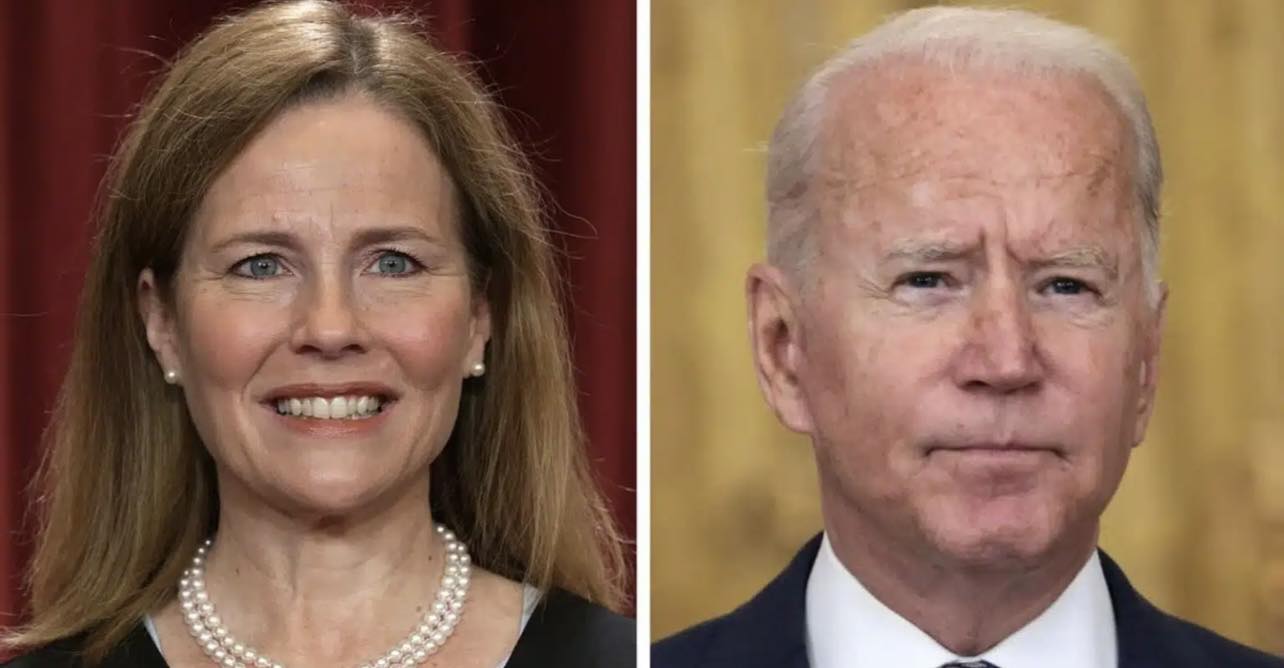The Supreme Court released its final decisions of the term Friday morning, handing down its highly-anticipated ruling on President Joe Biden’s student debt relief.
The nation’s highest court weighed the Biden administration’s plan to erase up to $10,000 in federal student loan debt for borrowers and up to $20,000 for recipients of Pell Grants.
In the Dept. of Education v. Brown, the Court ruled 9-0 that they do not have standing and tossed the lawsuit. This involves individual borrowers.
In Biden v. Nebraska, the justices ruled 6-3 against it. To be clear, the court has struck down the Biden Administration debt-forgiveness program.
On the merits of the plan, the Biden administration had relied on the HEROES Act, a post-9/11 law that allows the Secretary of Education to “waive or modify any statutory or regulatory provision applicable to the student financial assistance programs . . . as the Secretary deems necessary in connection with a war or other military operation or national emergency,” SCOTUS Blog reported.
There are several legal instances involving the cancellation of student loans. In one instance, a class action complaint claimed that the Education Department had improperly delayed or denied hundreds of thousands of petitions for borrower defense to repayment. The settlement agreement would erase over 200,000 borrowers’ student loans worth $6 billion, rehabilitate their credit, and reimburse their payments.
The Supreme Court also heard oral arguments in the cases of Department of Education v. Brown and Biden v. Nebraska, both of which seek the court to invalidate the student loan debt reduction initiative that President Joe Biden launched in August. For individuals who did not get Pell Grants, the program would erase up to $10,000 in student loan debt; for those who did, it would forgive up to $20,000 in debt.
“More than three years after payments were paused and interest rates on the loans were reduced to 0% in March 2020 during the Trump administration and extended multiple times under Biden, student loan interest will begin accruing again on Sept. 1 and payments will be due in October. The Department of Education told FOX Business earlier this month it will notify the more than 40 million student loan borrowers ‘well before payments restart,’” Fox Business reported.
Budgets in the United States have become more strained during the pandemic pause as a result of extremely high inflation driven by a rise in demand, Russia’s conflict in Ukraine, and expanding government expenditure.
In the meantime, wage growth has lagged behind rising costs, and U.S. household debt has reached a record high of $17 trillion, with an increasing number of people falling behind on a variety of loan payments.
The consequences of not making student loan payments, however, can be severe, including default and delinquency. Borrowers in default would not only see their credit scores suffer, but they might also lose access to government assistance and benefits.
“Experts encourage anyone concerned about being able to make their student loan payments to consider an income-based repayment plan, which considers a borrower’s expenses in determining payment amount. Borrowers can determine eligibility at the Federal Student Aid website,” Fox Business reported.
“Current and former government or nonprofit employees may also be eligible for the Public Service Loan Forgiveness Plan, which forgives student debt after 10 years. Borrowers may also seek a further pause on their loans with deferment or forbearance, but under these situations, the loans still do not go away and interest can still accrue,” the outlet added.
Back in March, Biden said following the arguments portion of the case that he wasn’t “confident” the loan giveaway would pass constitutional muster under the parameters established by a majority of justices.
“President Joe Biden told reporters Wednesday he is not confident the Supreme Court will uphold his executive order to cancel up to $20,000 of federal student loan debt for tens of millions of borrowers—a day after the court’s conservative majority seemed skeptical of Biden’s authority to enact debt relief,” Forbes reported.
Biden said outside the White House he’s “confident we’re on the right side of the law, but I’m not confident about the outcome of the decision yet,” according to a White House pool report.
Justice Brett Kavanaugh said at the hearing that “some of the biggest mistakes in the court’s history were deferring to assertions of the executive or emergency power,” while liberal justices, like Elena Kagan, defended the move as legal under the “very broad language” of the 2003 HEROES Act, Forbes noted further.
“Biden announced the student loan program in August, honoring a campaign pledge he made before the 2020 election. About 26 million borrowers applied in the few weeks applications were open, and more than 16 million were approved before a pair of court decisions put the loan forgiveness effort on hold. The administration had estimated that as many as 40 million people would be eligible for relief under the program,” USA Today reported.

